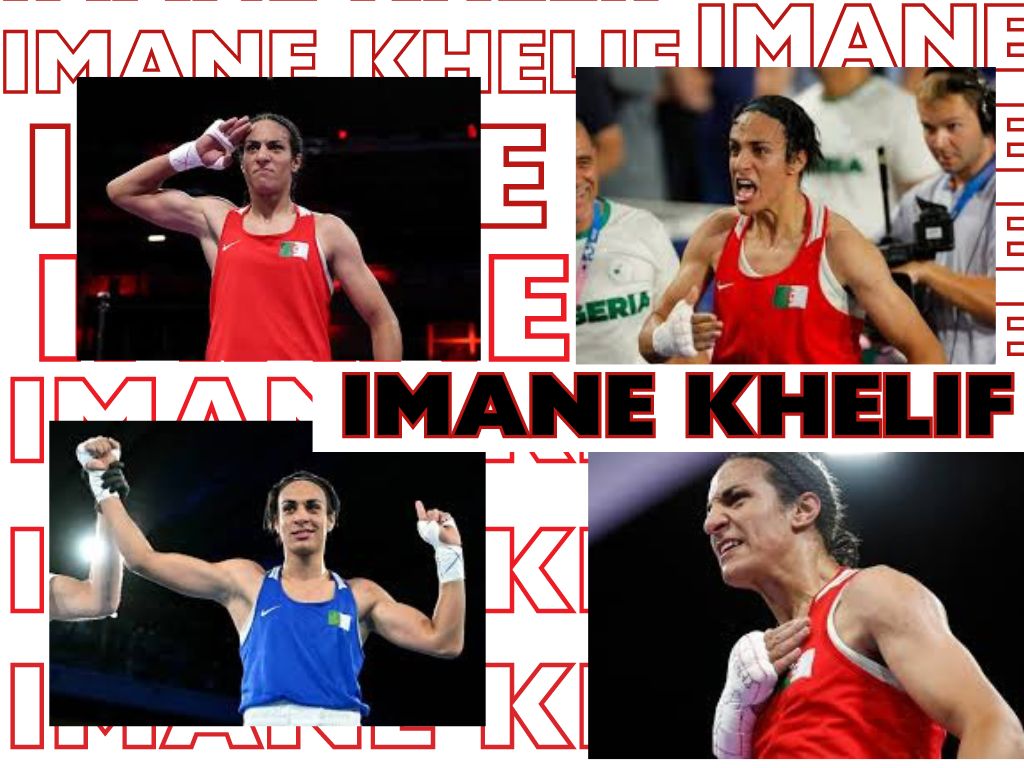During the Paris 2024 Olympic Games, Imane Khelif, a 25-year-old Algerian boxer, became one of the most controversial athletes in the world. Khelif spent her life challenging social norms in a male-dominated sport, but because of a gender controversy and the spread of misinformation, her accomplishments are forever overshadowed.
From a young age, Khelif had a love of boxing. In an interview with Reuters, her father, Amar Khelif, said, “Imane is a little girl that has loved sport since she was six –years old.”
Her road was paved with difficulties from the very beginning. Khelif remembers having to sell bread in the streets of her town just to afford the bus ticket to get to the gym where she trained. In an interview with Canal Algerie, she said “I come from a region and family that are conservative. Boxing was a sport for men only and the hardest thing for me was traveling between my village and the town where I trained.”
Despite the setbacks, Khelif trained hard and quickly rose through the ranks of the amateur boxing circuit in Algeria debuting in 2018 at the Association Internationale de Boxe Amateur (AIBA) Women’s World Boxing Championships. By 2020 she was chosen as the first female boxer to represent Algeria, beginning her Olympic journey with Tokyo 2020. While Khelif lost in the quarterfinals to Irish boxer Kellie Harrington, making it that far launched her to the global stage.
Following her Olympic premiere, Khelif skyrocketed to stardom. In 2022, she won silver at the International Boxing Association (IBA, formerly the AIBA) World Championships in Istanbul and later gold at the 2022 African Amateur Boxing Championships in Maputo, but her rise was quickly halted as the 2023 IBA Women’s World Boxing Championships in New Delhi brought an unexpected turn.
Right before her gold medal match following her victory over then undefeated Russian boxer, Azalia Amineva, the heavily Russian-influenced IBA announced that Khelif did not meet their gender eligibility criteria. While they didn’t give many details as to why she was disqualified, it was later confirmed that Khelif had elevated levels of testosterone. On top of this, the IBA’s president Umar Kremlev said that DNA tests proved “they had XY chromosomes,” sparking transgender rumors and the mass spread of misinformation.
As the Paris 2024 Olympics approached, the International Olympic Committee (IOC) came out with a statement calling the testing process flawed.
“From the conception of the test, to how the test was shared with us, to how the tests have become public, is so flawed that it’s impossible to engage with it,” IOC spokesman Mark Adams explained.
In fact, the IOC stripped the IBA of their duties as the governing body of Olympic boxing due to various scandals and their inability to address corruption concerns.
Khelif kicked off her 2024 Paris Olympics with a 46-second win against Italian boxer Angela Carini catapulting her into the spotlight. Shortly after, the rumours around Khelif’s biology picked up once again, and misinformation was fueled by social media and inaccurate fact-checking from news sites.
Many argued that Khelif’s elevated testosterone levels gave her an unfair advantage, but by that logic wouldn’t Simone Biles, the United States Olympic gymnast have an unfair advantage? Standing at 4’8”, her small build allows her to have a lower center of gravity and increased agility, but nobody is disqualifying her from tournaments.
By this logic, wouldn’t Han Xu, the basketball player from China has an unfair advantage because she is 6’11”? Hyperandrogenism is a medical condition when a woman’s body produces too much testosterone. It doesn’t make Khelif a man just as it doesn’t excuse the media vilifying and harassing her.
Amidst the controversy, the IOC and the Algerian Olympic Committee stood behind Khelif making countless statements debunking the rumours and condemning the hate and attacks.
She went on to win gold in the 66 kg category beating Yang Liu, a boxer from China 5-0 after the fight stating “I’m a woman like any other woman. I was born a woman. I lived a woman. I competed as a woman. There’s no doubt about that.”

